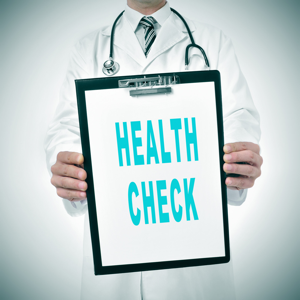How to Properly Time Your Fat Intake  What have we heard over and over for the past decade? When you want to lose fat, cut the fat out of your diet! It’s one of the first things most people try to eliminate from their foods when they decide to drop a few pounds! Is it true? Are those tasty fats the reason we are so overweight? Not necessarily. Truth be told, certain fats are essential and without these essential fats, our bodies wouldn’t function properly. What does affect our body and the amount of fat we store, is the quantity, type of fats consumed and WHEN they are consumed. Read on….. Certain healthy fats, which we consume in our foods, provide us with essential fatty acids that cannot be produced by the body. These fatty acids play a very important role in our overall health and performance. It is recommended that the total fat we consume stay around 30% daily. This is a far cry from the 10-15% recommended by some of the notorious “fad” diets on the market. Now, this is not a OK to start downing every donut you see or to fry every piece of chicken you eat. Smart fat consumption would provide the majority of your fat intake in the form of the omega-3’s and the monounsaturated fats (ex. Olive oil). The bad fats, the saturated kind (yes, the donuts and fried foods), shouldn’t be eliminated entirely, they should simply be kept to a minimum. When planning your menus, keep in mind that WHEN you consume your fats is key. For those exercising consistently (should be EVERYONE), avoid or limit fat altogether pre and post workout. Fats consumed during these periods will slow the digestion of protein and carbs, not what you want before or after your training. The quick absorption of these nutrients, during these times, will enhance your recovery and growth. In addition, research has shown that eating large amounts of fat before training can affect the blood flow to muscles and it has shown to also have an effect on the level of growth hormone. Again, not the effect we want prior to exercise. We want to encourage the release! Yes, ladies, you do! Though everyone’s body works differently, the consensus is to limit fat intake to less than 10 grams at meals within two hours before or after exercise. Keep in mind that the healthy omega-3 fats are the best choice at these meals since they are more readily used for fuel during exercise. Ask us about the best choice for supplementation! For those that need a little extra direction or motivation, remember, online fitness and nutrition coaching programs can help you make the most of your investment, in the shortest possible time, with the greatest return.
What have we heard over and over for the past decade? When you want to lose fat, cut the fat out of your diet! It’s one of the first things most people try to eliminate from their foods when they decide to drop a few pounds! Is it true? Are those tasty fats the reason we are so overweight? Not necessarily. Truth be told, certain fats are essential and without these essential fats, our bodies wouldn’t function properly. What does affect our body and the amount of fat we store, is the quantity, type of fats consumed and WHEN they are consumed. Read on….. Certain healthy fats, which we consume in our foods, provide us with essential fatty acids that cannot be produced by the body. These fatty acids play a very important role in our overall health and performance. It is recommended that the total fat we consume stay around 30% daily. This is a far cry from the 10-15% recommended by some of the notorious “fad” diets on the market. Now, this is not a OK to start downing every donut you see or to fry every piece of chicken you eat. Smart fat consumption would provide the majority of your fat intake in the form of the omega-3’s and the monounsaturated fats (ex. Olive oil). The bad fats, the saturated kind (yes, the donuts and fried foods), shouldn’t be eliminated entirely, they should simply be kept to a minimum. When planning your menus, keep in mind that WHEN you consume your fats is key. For those exercising consistently (should be EVERYONE), avoid or limit fat altogether pre and post workout. Fats consumed during these periods will slow the digestion of protein and carbs, not what you want before or after your training. The quick absorption of these nutrients, during these times, will enhance your recovery and growth. In addition, research has shown that eating large amounts of fat before training can affect the blood flow to muscles and it has shown to also have an effect on the level of growth hormone. Again, not the effect we want prior to exercise. We want to encourage the release! Yes, ladies, you do! Though everyone’s body works differently, the consensus is to limit fat intake to less than 10 grams at meals within two hours before or after exercise. Keep in mind that the healthy omega-3 fats are the best choice at these meals since they are more readily used for fuel during exercise. Ask us about the best choice for supplementation! For those that need a little extra direction or motivation, remember, online fitness and nutrition coaching programs can help you make the most of your investment, in the shortest possible time, with the greatest return.
